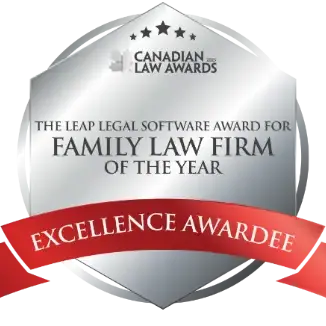Vancouver estate litigation and unfair Will lawyers help you ensure you obtain your fair share of an Estate. Our Vancouver estate litigation lawyers know losing a loved one is hard enough. Don't lose your share of the estate too. We deal with Vancouver estate litigation cases of all kinds including unfair Wills variations, trust claims, joint property disputes, undue influence, testamentary capacity, challenging the validity of a will, power of attorney malfeasance and elder abuse.
What is Vancouver estate litigation when it involves the BC Wills and Estate Succession Act (WESA)?
What constitutes a valid will and how do I go about challenging the validity of a will In a Vancouver estate litigation dispute?
What is a Vancouver estate litigation case entail when it involves testamentary capacity?
What are the principles of determining inheritance rights in a Vancouver estate litigation dispute?
Who pays legal fees on a contested will in a Vancouver estate dispute?
What does the new WESA legislation change for Vancouver estate litigation in BC?
What is Vancouver estate litigation when it involves the BC Wills and Estate Succession Act (WESA)?
The BC Wills and Estate Succession Act (WESA) maintains rights for spouses and children to vary unfair wills, it simplifies the estate distribution process for appointed executors, committees and lawyers and it provides increased clarity for individuals who put their last wishes in writing. Our Vancouver estate litigation lawyers explain that the BC WESA Act also:
- Clarifies the process of inheritance when a person dies without leaving a will;
- Makes the process easier for a person to transfer the title of their spousal home when their spouse dies;
- Clearly outlines the sequence in which to look for heirs to a person’s estate;
- Provides the courts with more latitude to ensure a deceased person’s last wishes will be respected;
- Clarifies obligations relating to property inheritance in the context of Nisga’a and Treaty First Nation lands;
- Lowers the minimum age a person can make a will from 19 to 16 years old;
- Contains a brand new onus clause for undue influence;
- Takes into account the impact of the new Family Law Act on spousal will variation claims.
What constitutes a valid will and how do I go about challenging the validity of a will In a Vancouver estate litigation dispute?
A valid will must be in writing and be signed at the end by the will-maker. The will-maker must sign the will in the presence of two or more witnesses that are present at the same time. Two or more of the attesting witnesses must subscribe the will in the presence of the will-maker. The will-maker must be at least 16 years old and the witnesses must be at least 19 years old.
Our experienced Vancouver estate litigation lawyers explain WESA has relaxed the rules for what constitutes a valid will and what the Court can do to rectify and interpret these wills. Texts, emails, notes written on paper napkins, unwitnessed, homemade wills and possibly video and audio recordings may be held as valid wills in BC.
Obviously, non-traditional will documents are often poorly written and they can be vague, making interpretation and rectification of defective wills important. WESA Section 4(2) dispenses with the distinction between patent and latent ambiguity for the purpose of admission of extrinsic evidence. It allows extrinsic evidence of surrounding circumstances, but not evidence of the testator’s intention, to be admitted for the purpose of showing that ambiguity exists.
If you have a Will Interpretation case and need guidance on how to interpret and carry out a loved one’s will, call our Vancouver estate litigation lawyers across BC toll-free at 1-877-602-9900.
What is a Vancouver estate litigation case entail when it involves testamentary capacity?
Our Vancouver estate litigation lawyers know that for a will to be valid, the person making the will must be of sound mind, memory and understanding. This is legally known as having a “testamentary capacity” which means that the person executing the will must:
- Understand that the will has the effect of distributing his or her property at the time of death;
- Be capable of remembering generally what property is subject to distribution by will;
- Be capable of remembering those persons related to him or her; and
- Be capable of expressing an intelligent scheme of distribution.
If the testamentary capacity of a person is in question, this may open up a will to be challenged. Some indications that testamentary capacity might be in issue are the following:
- Large departures from an earlier testamentary document;
- Suspicious circumstances;
- The possibility of undue influence;
- An illness or mental illness present at the time the will was prepared;
- Knowledge that the will-maker was on medication or drugs that could have altered their mental state;
- A will-maker who rushed into preparing the will on an urgent basis.
The testamentary capacity of an individual can be both a delicate and complicated issue. The wills and estate litigation lawyers of MacLean Law are available to answer any questions regarding testamentary capacity.
What are the principles of determining inheritance rights in a Vancouver estate litigation dispute?
Vancouver estate litigation lawyers explain that under the Wills and Estate Act, the principles of determining inheritance rights are:
- When a person is a spouse;
- The effect of adoption;
- The requirement to survive at least five days;
- The implications of a posthumous birth;
- The rights of posthumously conceived children.
Other fundamental rules are also addressed, including:
- The requirements for a contrary intention in a will to be given effect;
- The admissibility of external evidence to interpret a will;
- What happens if two people who inherit from each other die simultaneously.
Finally, the implications of Nisga’a and First Nations’ Final Agreements on succession law and, in particular, their right to control the disposition of treaty lands and cultural property are also addressed.
Who pays legal fees on a contested will in a Vancouver estate dispute?
Vancouver estate litigation lawyers want you to understand that the expense involved in an estate dispute is often paid from the estate and can significantly erode the amount remaining for the beneficiaries. However, in cases where the party loses the variation action, the estate doesn’t pay, the losing party will have to pay the legal costs of the winning party. It’s important to note that depending on the circumstances, the court will have discretion to depart from that rule and grant costs out of the estate.
If you and your loved ones require estate litigation guidance, contact the experienced Vancouver estate litigation lawyers at MacLean Law.
What does the new WESA legislation change for Vancouver estate litigation in BC?
Our top rated* Vancouver BC Estate Litigation lawyers want you to know that the Wills, Estates and Succession Act, S.B.C. 2009, c. 13 (“WESA”), sections 36-40 set out the new rules for Wills in BC:
- The will must be in writing and be signed at its end by the will-maker;
- The will-maker’s signature must be made or acknowledged by the will-maker in the presence of two or more witnesses who are both present at the time of signing by the will-maker and the witness must be age 19 or older;
- The age of the will-maker is now 16 down from 19;
- Section 52 of WESA creates a new presumption of undue influence where certain types of relationships exist. Under this provision, a party challenging a will based on undue influence will need only show that the will-maker was in a position of dependence or submission to another person;
- Relaxed rules for curing defective wills.











